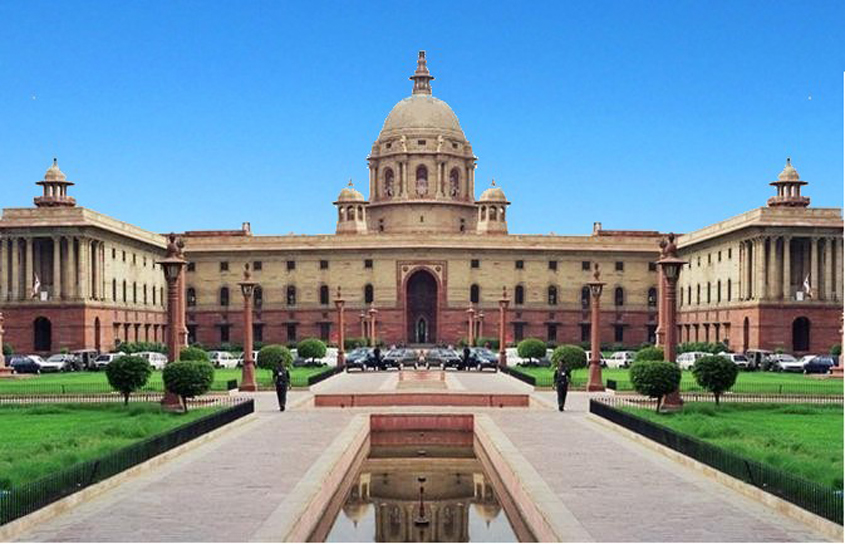The number of “communal incidents” in the country has shown a downward trend since 2012, according to data collated by the Ministry of Home Affairs (MHA). In 2012, the MHA recorded 668 communal incidents across 29 states and seven Union Territories; this went up to 823 cases in 2013. However, in 2014, the figures came down significantly. Only 644 cases were recorded by the MHA in 2014, while in 2015, the number went up again to 751 cases and in 2016, the total number of communal incidents recorded were 703.
According to the data, the number of people killed in communal incidents in 2012 was 94; in 2013 it was 133; in 2014, 95; in 2015, 97; and in 2016, the number of people killed was 86.
The data collated by the MHA is being used by the National Commission for Minorities (NCM) to lay out a road map for its communal sensitisation programmes. The term “incidents” refers to any personal or public conflict, including some cases of riots and mass violence.
However, the number of people who were injured during communal incidents has increased. In 2012, 2,117 people were injured due to communal incidents; in 2013, the number was 2,269; in 2014, it was 1,921; in 2015, it was 2,264, and in 2016, the number of injured were 2,321.
Separately, the number of complaints received by the NCM shows that crimes against minorities has decreased since 2014. In 2011-12, Muslims registered 1,743 cases with the NCM; in 2012-13 it was 1,508 cases; in 2013-14 the number was 1,988; in 2014-15 it was 1,436 cases; and in 2015-16, until 28 March, 1,422 cases were registered.
Taking a look at the complaints filed by the Christian community, in 2011-12, 202 cases were registered by NCM; in 2012-13, 199 cases were registered; in 2013-14, it was 187 cases; in 2014-15 it was 119; and in 2015-16 it was 145 cases. The Sikhs registered 200 cases in 2011-12; 150 cases in 2012-13; 186 cases in 2013-14; 131 cases in 2014-15; and 121 cases in 2015-16. Buddhists registered 53 cases in 2011-12; 35 in 2012-13; 45 in 2013-14; 34 in 2014-15; and 32 cases in 2015-16.
However, complaints by the Parsi and Jain communities have witnessed a rise between 2012 and 2016. In 2011-12, Parsis registered only nine complaints were registered with NCM. In 2012-13, 10 complaints were registered. In 2013-14, there were 13 complaints, whereas it was 10 in 2014-15. In 2015-16, the number came down to 11 as recorded by the NCM until 28 March. The Jain community had zero complaints filed between 2011 and 2013. In 2013-14, eight cases were reported; in 2014-15, the number rose dramatically to 60 and came down to 49 in 2015-16.
Taking cognisance of NCM’s data, Syed Ghayorul Hasan Rizvi, the newly appointed chairman of NCM, told The Sunday Guardian, “There are several reasons why crime cases in the two smallest minorities of the country, Parsis and Jain, have increased over the years. The first is that among Parsis, groupism is strong. There are several sects that follow different religious leaders. This leads to conflict within the community. Then, other communities have a prejudice against Parsis that they are closer to the United States and Israel, therefore, they are seen as foreigners and not Indians. Half of the cases registered by the Parsis is against Parsis, while the rest are against the majority community. In the case of Jains, their complaints are largely against other minority communities who see Jains as Hindus and not as a fellow minority group.”
The cases of crimes registered by minorities with the NCM are not always against the majority community. A significant number of cases registered by the minorities is against their own community, or against other minority communities. In the case of Muslims, Rizvi said, “There are cases of infighting between Shias and Sunnis, and against Wahhabis. Personal disputes, property disputes etc., that turned violent have been recorded. But overall, in the last few years, the cases have decreased across communities. A major reason behind this is the current government’s efforts to create an inclusive environment for Sabka Sath, Sabka Vikas.”

